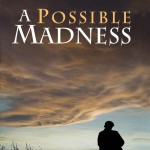“Madness” a possible re-read in these times
 News stories this past couple of weeks exposed some real-life situations that brought to mind Frank Macdonald’s IMPAC Dublin-nominated novel, A Possible Madness (CBU Press, 2012) and one of our favourite reviews of that novel.
News stories this past couple of weeks exposed some real-life situations that brought to mind Frank Macdonald’s IMPAC Dublin-nominated novel, A Possible Madness (CBU Press, 2012) and one of our favourite reviews of that novel.
You can check out the news stories we mean with the following links below, or get a synopsis from a recent blog post by Mike Hunter, here.
What do these stories have to do with a work of fiction? Well, the main protagonist in A Possible Madness is a city-trained journalist turned editor-owner of a small town weekly. David Cameron’s journalistic instincts, homegrown ethics, and not a little courage manage to expose to his community an ill-conceived development plan that, instead of boosting the local economy, will risk the very lives of those it promises to employ and the very survival of the town itself.
Back in 2013, essayist Wilf Cude, himself a product of a mining town in northwestern Quebec and now a resident of Roberta, Cape Breton, published a profound review of A Possible Madness in The Antigonish Review (no. 171, Winter 2013, ff. 119). Cude quotes Aleksandr Solzhenitsyn who once opined about the limits of so-called free speech, the free circulation of ideas. To paraphrase, we are free only by definition; in reality we are “hemmed in by the idols of the prevailing fad.”
“‘[T]he need to accommodate mass standards … frequently prevents the most independent-minded persons from contributing to public life and gives rise to dangerous herd instincts that block successful development’,” said Solzhenitsyn in a speech at Harvard University.
Wilf Cude writes: Journalism had schooled the fictional David Cameron that the malign circumstances of “an economically deprived part of the world, preferably sparse in population [is an essential starting point] where rapacious exploitation could be unleased with impunity.”
“A slick web of professional rationalizations” for schemes and talks between corporate interests and governments is captured by Cameron, “ ‘everyone but the people who live here and who will have to live with whatever consequences there are’.”
“Dismayingly, [Cameron] encounters one after the other the many subtle obstacles our society has put in place to frustrate any serious inquiry about the truth behind contentious policies.”
“The tiny community of Shean is in truth very real—and is in truth everywhere.”
Frank Macdonald is revered for his cutting-edge satire as much as for his priceless (and oh-so-real) characters and for his enduring commitment to Cape Breton, warts and all. His commitment, like his satire, cuts deeply when addressing the injustices of political and corporate hegemony, and A Possible Madness bleeds truth; it’s well worth a re-read.
New Glasgow book signing cancelled under pressure from Northern Pulp:
Protest against proposed rock quarry on Kelly’s Mountain (again):
Lobster fishing seen as under threat from proposed sonic seismic testing:
Cape Breton (Sydney) port development deals done in camera:
Torstar and Post Media swap, and then close, dozens of small-town newspapers:





